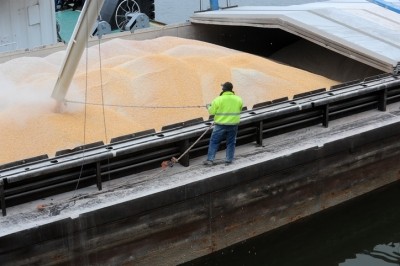Canadian canola producers seek to reopen Chinese market

In March 2019, two major Canadian grain trading companies – Richardson International Limited and Viterra Inc. – saw their licenses to export canola seed to China suspended, the council told us at that time.
Almost a year later, there has been no “significant change” to the situation, said Jim Everson, president of the Canola Council of Canada (CCC).
“Two of our companies are not able to export canola seed to China,” he told us. “Their permits are suspended by the Chinese administration.”
Other Canadian companies have been able to complete some sales, which continues to suggest that the underlying issue may be political, he said.
“Our goal is to return a full and predictable trade environment with China as quickly as possible – we’re certainly not there yet,” he said. “Obviously the issue is quite complex – it’s not primarily about canola at all, it’s about political concerns between Canada and China.”
The legislators need to focus on improving the trade relationship with China, he said.
“The government here in Canada is committed and working hard on the issue, I think canola has its attention and I think the trade relationship with China is getting a lot of attention –so, I think it’s a matter of keeping at that,” he added.
“The single measure that is required there is for governments to work together to make sure that markets remain open and that we respect the rules of trade that countries have committed to through the WTO [World Trade Organization],” he said.
Trade spat background
When the initial pause in canola seed trade started, Chinese officials said they were increasing quarantine and laboratory testing on canola shipments and that some pests had been detected in imported canola from Canada.
At the time, there were questions about the nature of the pest concerns raised as the quality of the canola being exported had not changed, the council said. Some of the issues also reportedly involved finding weed seeds for species not found in Canada.
“If it were just issues around quality, then the technical discussions that we’ve been trying to have with China would have allowed the issue to be resolved relatively quickly,” said Everson. “Other importers have not raised any of these issues with Canada either, so we think it’s broader issues that require some real effort on behalf of our government, our diplomats and those in China to find a solution.”
Canola trade
Supporting and expanding trading partners is important, said Everson. But there needs to be attention given to reducing technical barriers to trade, lowering tariffs and supporting and “open, rules-based environment.”
Overall, Canada exported about a third of the volume of canola seed to China last year that it anticipated selling, he said. Canola seed exports dropped by about 70%.
The loss in sales is estimated to be about CA$1bn ($717.1m US), the council reported. Previously, China accounted for about 40% of Canadian canola seed, meal and oil exports.
Trade and trade agreements are critical for the canola industry, Everson said.
Following the reduction in market access to China, there has been an expansion of canola seed sales to other regions or countries and there is a strong international demand for canola products, he said.














